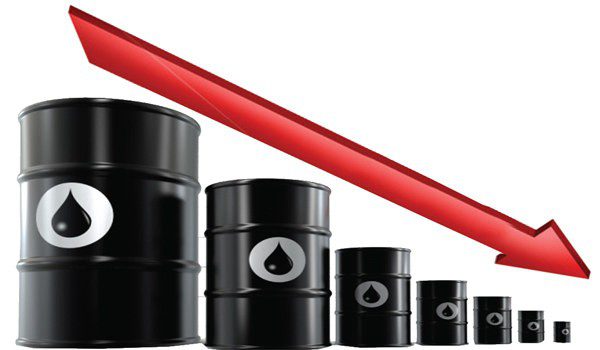To your surprise, here’s how low oil prices can hinder plastic recycling..

Pic Credit:– tjogel.org
A huge drop in fuel prices is good news for the readers out there. After all, you can run your car on a gallon. The declining oil and energy prices are a welcoming change for businesses like aviation, transportation, and every driven industry.
But it comes with a different meaning for a plastic recycling industry. People who own these industries may not be happy with that. Why?
Plastic is made from petroleum. Right?
So, when the prices of oil drop, so do the manufacturing cost of new plastic products. Therefore, it will be cheaper for manufacturers to buy/make new plastic than purchasing recycled plastic.
It simply means why the industry will get recycled plastic if they are getting a new one at cheaper prices. This leads to decreased sale among the recycling industries.
Keep in mind that plastic recycling is an expensive business. The cleaning and processing of plastic take excessive energy with labor.
Factors That Lead to Dropped Oil Prices in the USA
The past two and a half years have seen the lowest oil prices since 2003 in the USA. Many experts also believe that the “oil industry experienced its deepest downturn since at least the 1990s.” The oil production in the nation is on the rise, reducing its dependence on imported oil, and at the same time, the demand for oil has decreased around the world.
It simply means that the supply is more and demand is less.
Plastic is Not Easy to Recycle:
With the declining oil prices, it would be better for the manufacturers to make new plastic than to put money on the expensive recycling process. And that surely add to the complications and limitations associated with plastic recycling. For example, it’s not easy to recycle plastic due to various shape and types.
Therefore, it is a serious concern if the plastic is not recycled. It will lead to huge plastic waste on the planet. Plastic takes at least 500 years to decompose! And when it breaks down, toxic chemicals contaminate the earth.
Most plastic either goes to landfill or ocean. By 2050, there would be more plastics in the oceans than fishes if the plastic waste continues to grow with the same rate.
Plastic Waste Makes Your Vulnerable to Some Serious Health Threats
Plastic poses serious health threats in many direct and indirect ways. This is because of the chemicals that are used to give them characteristics like flexibility and strength.
Some of these chemicals like BPA, PBDE, and TBBPA are hormone-disrupting which are linked with adverse health hazards like cancers, birth defects, endocrine disruption, and reproductive issues.
They enter the human body in many ways, from leaching in the food while using plastic packages or exposing to chemicals during production. Plastic waste also contaminates rivers and other resources which make contact with a human being.
What You Can Do?
You can’t control oil prices. It is not easy for you to break up with plastic altogether. The only thing you can do is to reduce the use of plastic. Less use of plastic means less plastic waste to be recycled or dumped in the landfills or oceans. Here are some simple ways to do that…
- Minimize Buying Bottled Water. Use a Refillable Bottle Instead.
- Bring Your Own Thermos to the Cafes as Disposable are a Type of Plastic Resin.
- Prefer Cardboard Packaging Over Plastic Bottles and Bags
- Avoid Using Straws
- Choose Blade Razor over Disposable Razor
- Use Recyclable or Reusable Shopping Bags
- Buy in Bulk
- Don’t Use Plasticware at Home





